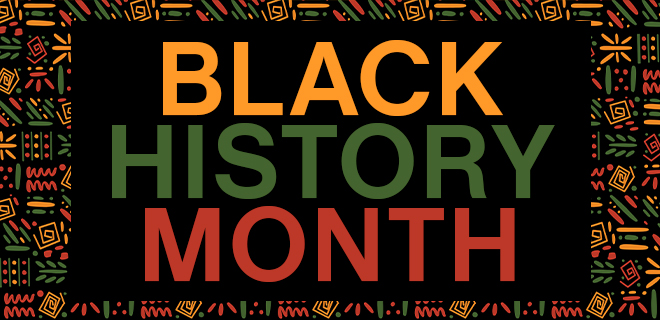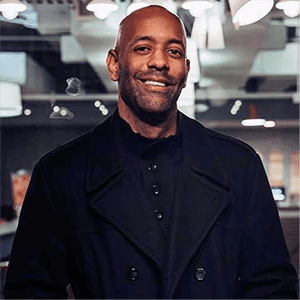
As Americans, we’ve all heard the expression: Pull yourself up by your bootstraps. The phrase emphasizes upward mobility without much outside help and is a long-held standard of the American dream.
It centers the individual to gain success on their own.
Cedric J. Rogers, Co-Founder and CEO of Culture Genesis Inc., proclaims a different type of success. A success centered around support from and for your community.
Rogers grew up in Houston raised by a family of entrepreneurs. While his parents taught him to work hard for his accomplishments, they also led him to use his resources to give back to those in need. Those lessons still ring true in his business style today.
From creating startups to owning one of the largest Black-owned digital networks with Youtube ad sales rights, Rogers has always invested in the Black community and ensured that others benefited from the wealth and resources he acquired.
To honor his legacy and the history he continues to make, we chatted with him about his career in digital media and ad tech, the benefits of investing in BIPOC media, and his mission to uplift the Black community.
Started From the Bottom
Andrew Byrd: How did you start your digital media and tech career?
Cedric J. Rogers: I spent most of my career at Apple. I started as a system engineer and transitioned to developer relations working on apps. But my background is in digital technology applications and coding.
Afterward, I got into startup culture. I created a startup called Prizm, which exposed young people to other people of color doing remarkable things. I wanted to open their eyes to opportunities outside their environments. I also created a startup called LookLive Inc., centered around men’s fashion.
I then moved to the Bay Area and launched Culture Genesis. I co-founded the company with Shaun Newsum, an engineer from New York. Our goal with Culture Genesis was to build a platform for creators of color to help monetize their products. That was always our vision.
We started building out by partnering with celebrities like Steve Harvey and Kevin Hart. We expanded into a network of channels, including comedy, music, and poetry. We started working with other digital publishers and creators, and now we have the only Black-owned network with YouTube ad sales rights. So there’s a significant increase in revenue for creators and publishers that work with us. It’s a win-win for everyone.
Community-Focused Business
AB: You are a major investor in multicultural publishers and creators worldwide. Why was this mission a vital part of your business?
CJR: I grew up in Houston, and my parents were entrepreneurs. From a very early age, they instilled in me that you help your community while making money. I watched my parents build their businesses as a kid and how they served the people around them simultaneously. Of course, making money is great, but I want to make an impact with my resources. I want to make money, but I also want to push our community forward. We wanted to do something for the culture, and that’s the core. That’s how I started everything, honestly.
FUBU: For Us, By Us
AB: You are the founder of Culture Genesis, that’s known as one of the largest Black-owned digital networks. Did you imagine this for yourself at the start of your career? What does holding this title mean to you?
CJR: It was different from our initial goal. We saw ourselves building a platform similar to Steve Jobs. We saw ourselves in someone like Black billionaire Robert L. Johnson, who amassed his wealth through the media.
A great deal of wealth comes from the media, so it’s not surprising that I landed here. That’s the beauty of technology. We no longer need what used to be to build successful companies.
In addition, people of color over-index in the media because we lead with the culture and have so much influence nationally and globally. Our talents and our culture are all encompassed in the media through music, entertainment, and sports. I want to leverage technology with my resources to help us get better distribution. Often we have the content, and we have talent, but we need the distribution to be able to monetize our content. As technologists, we want to leverage our skills to do that for our people.
AB: In 2021, Culture Genesis Inc. gained $5 million in revenue after gaining YouTube ad sales rights. You invested a significant amount of that revenue into Black-owned media. Do you see Black-owned media brands gaining more support in recent years? What would you say to investors who do not see Black-owned media or Black audiences as a valuable asset to their business?
CJR: In general, black-owned entities in the media have gained more investment, but more is needed. The investment, first and foremost, has to come from our community. We need to support and invest in ourselves. Although, we also need others outside of our community to invest in us.
For example, Robert L Johnson, the co-founder of BET, mentioned that he was fortunate because people invested in him very early on to help his company. Black people invested in his business, as did people outside the community.
There’s a great wealth of untapped business opportunities within our communities. They may need help understanding the challenges these entrepreneurs solve, but that means there’s an opportunity to bring fresh perspectives to the table. That’s what we need all investors to understand. Communities of color are valuable audiences and entrepreneurs with a wealth of knowledge and skill to change the game. They just need the right opportunities.
AB: What final words of advice would you give to upcoming Black media owners who want to follow in your footsteps? How should we continue uplifting Black Media and consumers?
CJR: The first thing is, you have to believe in yourself. You must find a vision that feels true to you and that you’re passionate about and work diligently towards that goal. You must keep chopping wood daily and find that consistent practice that helps you stay centered in your work. You’ll find that people can’t stay centered on things long enough, and that’s a big part of success. It is a marathon rather than a sprint.
When it comes to media, we have to continue to invest in ourselves, network, and be willing to give as much as we want to receive. That’s what’s also worked well for me. I’m open to supporting others’ endeavors, which is how you get ahead.
To read more stories in our Black History Month series, check out:
